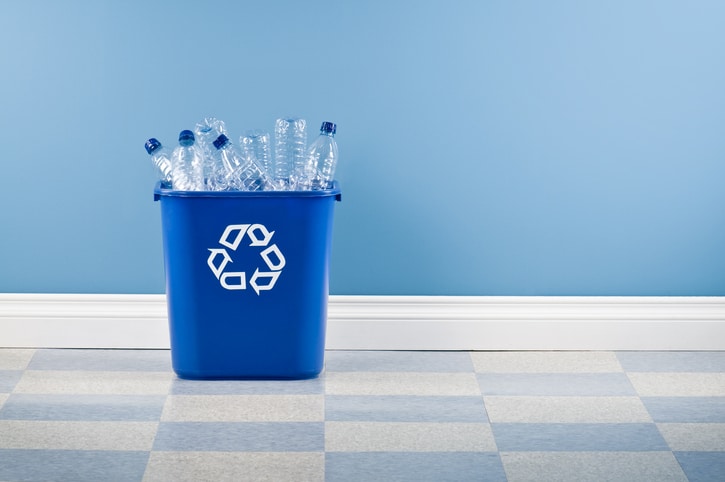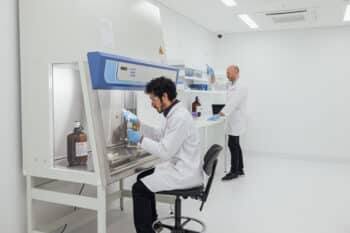With the environment now a focal point across the country, all manner of businesses are stepping up efforts to reduce the use of harmful plastics. Whether it’s museums, offices, schools or sports centres, workplaces are becoming more aware of the impact that plastic is having on the planet.
The attention placed on the plastic problem has seen a reduction in the use of plastic straws, retailers ending the sale of single-use bottles of carbonated drinks, and other eco-friendly measures to kerb the amount of plastic we use and throw away. Progress made in the reduction of plastic has been slow, and more must be done to reduce the devasting impact plastic can have on our environment.
Wildlife is particularly vulnerable to plastic and can easily become entangled in discarded items, or get a piece lodged in their digestive tracts, leading to injury or death. Certain plastics also release harmful chemicals into the surrounding soil, while the breakdown of biodegradable plastics can release methane, a greenhouse gas that’s one of the key triggers of global warming.
Recent reports on recycling have shown increases in the amount of plastic being repurposed year on year, especially compared to other materials like glass, textiles, paper and card. But, while this does signify a move towards more environmentally-conscious practices, figures suggest that the increase in the amount of plastic being recycled is down to a larger amount of plastic containers in the first place. Because of this, local authorities have added plastic bottles to their range of materials alongside paper, card, glass and metals, while a good majority have also started collecting pots, tubs and trays as of 2016/17.
As a result of more plastic packaging and an increased awareness for the importance of recycling, Welsh councils have nearly doubled the amount of plastic they collect per person, while Northern Irish authorities have seen an increase of more than a third. All told, the increase in plastic recycling can be seen in the Eunomia’s Carbon Index, which gives an idea of the local councils delivering the greatest carbon benefits. Currently, Cheshire West and rank the highest, with Lewisham being the worst performing local authority for the amount of plastic recycled per household.
Though positive gains have been made and workplaces are becoming more and more engaged with sustainability, there’s always more that can be done. To talk on the topic of reducing plastic, Mark Hilton, Head of Sustainable Business at Eunomia (the same folk who carried out the research above), was kind enough to answer our questions. So, if you’re looking for more ways to promote sustainability and reduce your plastic use, read on for more.
Hi Mark, thanks for taking the time to talk to us. How should a business begin to reduce its use of plastics? Should the change come from the management, or should a cultural change be implemented throughout the organisation?
Management need to drive the change, and commit to it. Welcoming ideas from staff, who can contribute suggestions of where they would like to see changes within the organisation, is an important part of introducing any change. However, without the commitment and interest of the management team, it is unlikely that long-term and wide-spread change will occur.
What can a business owner do if met with resistance from employees? Can management force the issue, or is it more important to treat the subject carefully?
In my experience, the vast majority of people are supportive on taking action when it comes to single-use plastics. But there will always be some individuals who will resist change in the workplace, especially if it comes with a perceived drop in convenience. For example, you might meet some resistance if you stopped supplying single-use coffee cups in your cafeteria, and demanded that all your employees bought their own reusable cup.
In order to avoid this kind of conflict, make sure that management prove that they are committed to wider environmental goals, and are not simply trying to cut costs. This could involve providing additional facilities, such as refill points, which provide convenience for employees and prove that you are invested in their welfare.
The important thing to do is to think carefully about the actions you as a business owner are taking, and how the changes you are planning will affect the day-to-day lives of your employees. As long as you keep the same level of convenience for your staff, and have sound and clear arguments for your changes, you should be able to deal with any resistance in an effective manner.
Do businesses who work with sustainability specialists tend to enjoy greater success when trying to reduce plastics than those who approach the project solo?
Yes! While it might be an obvious move for a company to change its packaging from plastic to glass or biodegradables, in reality there are a whole host of wider issues that are associated with material changes. For example, a company is unlikely to consider the receiving waste management system and its ability deal with something like a compostable pack, or the wider climate change impacts of using single use glass bottles for example.
Businesses that consult sustainability specialists are more successful because the changes that they implement have been carefully considered, and their environmental impact modelled, before any changes are made – so companies can be certain that the measures they implement have a genuinely positive environmental impact and make sense in practical, operational terms. Companies that go it alone are at risk of implementing environmental policies that are counterproductive in the long term.
Is it important for drivers of change within a business to demonstrate sustainability within the overall business model when presenting the idea to stakeholders?
It’s important that businesses are seen to be doing all that they can in a proactive way to demonstrate their sustainability. Having a strong stance on sustainability projects results in a reputation for investment in both the environment and society, which will encourage your customers and increase the retention of your staff as well as their commitment to your business. These benefits should of course be mentioned when presenting ideas to stakeholders.
Do many businesses see a return on investment through any prevalent sustainability methods?
Absolutely – the vast majority of resource efficiency measures are cost neutral or save money. The clue is in the name: it’s about efficiency and better use of resources, hence cost savings. Circular economy business models can also be the answer to declining profit margins, especially where the current business model is focused only on manufacturing and sales. The introduction of service elements (e.g. around lease and take back) that contribute to more circular business practices almost always result in commercial benefits.
What feedback have you received as a result of your sustainability partnerships with businesses?
The vast majority appreciate that we’re able to help meet targets and compliance goals, reduce risk, enhance reputation or directly improve profitability. The business benefit all in all is overwhelmingly positive.
What are the objectives and targets of your own sustainability projects?
The very nature of our work acts as our main sustainability goal. Our work influences environmental policy at the national and EU level, as well as playing a role in the US and other countries internationally. We work with private companies, influence businesses and their supply chains, and support NGOs by carrying out research. Our goal is to be agents of change for the better, and the essence of our business is helping others make the right choices to ensure a more sustainable future.
Internally, we strive to achieve over 95% recycling within our offices, and also run a carbon fund that monetises the carbon emissions produced as a result of our company – whether that is travel for work or the carbon footprint of our offices. We use the carbon fund to further environmental causes; recent examples include installing a public water fountain in central Bristol and running a deposit refund scheme on coffee cups at the NEC to minimise the plastic waste from single-use cups.
What business value have you seen from your own sustainability efforts?
Our commitment to walk the walk when it comes to sustainability efforts has resulted in our international reputation as a consultancy who are much more than a business model – we are a group of environmentalists running a business and use our experience to help others make the best decisions for the planet. Our reputation is built on our commitment to the environment, and there is untold business value in being seen as a truly ethical and committed business, which puts everything they preach into practice, both at work and in our day-today-lives.
InterFocus can help you create a more sustainable working environment. For more information about our bespoke fitted labs, visit our homepage or call our team on 01223 894 833.








